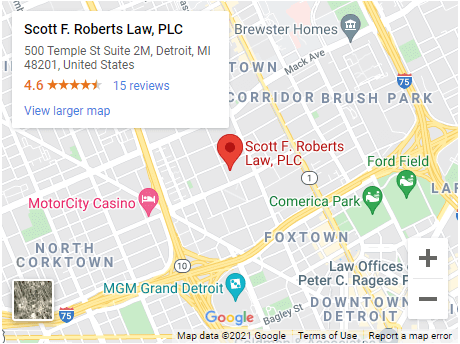Many cannabis investors interested in getting into the industry have used the stock market as a way to invest in North America’s growing marijuana industry. After experiencing years of nearly unfettered growth, cannabis stocks seem to have hit the proverbial wall. Popular stocks such as Tilray, Canopy, Medmen, and Aurora are no longer on a seemingly never ending upward trajectory.
Tilray, for example, was trading around $27 / share at the time this article was written, compared to last year’s high of over $214 / share. Similarly, Medmen’s stock is trading at around $2 / share, compared to last years high of close to $7 / share; Canopy is trading around $24 / share compared to last years high of close to $57 / share; and Aurora is trading around $6 / share compared to last year’s high of close to $12 / share.
Even at these lower current valuations, these businesses trade at a multiple well-above what an average investor would receive if he or she were investing in a closely held marijuana company. Those lucky enough to have access to these closely held company investment opportunities are able to invest in cannabis companies at far better prices and valuations compared to stock market investors.
Here in Michigan, there are plenty of cannabis companies looking for investors to complete their project or expand beyond their current footprint. We currently represent several cannabis companies currently seeking outside investment. However, many Michigan cannabis companies have struggled to find investors even though they offer far better valuations compared to the big cannabis stocks, many of which are consistently losing money quarter after quarter.
So what opportunities are out there for cannabis investors looking for investment opportunities outside the stock market? This article will explore two potential cannabis investment opportunities in Michigan—investing in “small cannabis” and investing in “micro cannabis.”
Big Cannabis v Small and Micro Cannabis
With the marijuana stock bubble seemingly “popped”, investors looking to invest in the growing cannabis industry may want to consider investing in small cannabis companies due to their potential for outsized returns as well as investors ability to favorably structure their investment. Investing in small and micro cannabis businesses is certainly not without risk, though as the last year has proven, there is significant downside risk even in investing in Big Cannabis stocks like Medmen, Tilray and others.
Given this landscape, investors may be better off investing in small and microbusiness cannabis companies, that offer a much greater upside compared to public companies. These investments are not for everyone, as even the smallest cannabis companies would not accept investments of $5,000 or $10,000 dollars. However, for those investors with significant capital to invest and who are looking for longer term investments, small and micro cannabis companies may present the best investment opportunities.
Investing in “Small Cannabis”
Small cannabis companies offer incredible opportunities for those who are able to understand Michigan cannabis investments and sort through the many companies looking for investment. Many of these companies purport to offer returns of capital in the high double digits or even greater, though not all projections are to be believed. Investments can also be secured by property and other assets and can also offer secured returns or first money out options. These are terms that only larger institutional investors would be able to secure with respect to “big cannabis” stocks.
So what makes a good cannabis investment? The best cannabis investment plays in our opinion are vertically integrated cannabis companies. These are companies that cultivate, “process” (i.e. make cannabis products such as edibles, oils, and wax) and operate dispensaries. Controlling the process from “seed to sale” protects these cannabis companies from fluctuations in the wholesale prices of marijuana as well as allows them to take advantage of advanced 280E tax planning. In short, vertically integrated companies have a “bigger moat”, as Warren Bufffet would say, compared to companies that focus only on dispensaries or only on cultivation or processing.
Many Michigan cannabis companies recognize this and are actively raising money so that they can “go vertical”. In other words, dispensary focused companies are starting to open up cultivation and processing facilities, and cultivation and processing companies are starting to open up their own dispensaries. To do so, many have to raise money to expand, which presents investors with opportunities to invest in companies on favorable terms and conditions.
While it is certainly important to evaluate the assets of a cannabis company prior to investment with small cannabis companies, investors are investing in people as much as they investing in the assets of a cannabis company. Put another way, a strong management team is arguably just as important as the real estate and licenses that a company holds. As several public companies have demonstrated, even having the best assets do not guarantee strong returns.
In sum, “small cannabis” provides incredible opportunities for those who are able to properly evaluate a cannabis companies potential. The key of course is to identify the companies with promising growth potential while discarding the companies that are poorly run or poorly structured. Of course, this is easier said than done, but for savvy investors, small cannabis offers far better opportunities than investing in cannabis stocks.
Investing in “Micro Cannabis”
Michigan and several other states are rolling out a new license type that can be particularly attractive to smaller investors looking to get a piece of the ever-growing legal cannabis market. That license is the “microbusiness” license. While the specifics of this license vary from state-to-state, in Michigan, a microbusiness license allows companies to achieve vertical integration at a fraction of the cost it would take with other cannabis license types, albeit at a much smaller scale.
Our law firm currently has several Michigan cannabis “microbusinesses” seeking investment in the range of $50,000 to $500,000. These companies offer potential sky high returns, though they are not without risk. With micro cannabis opportunities more so than cannabis stocks and smaller multi-license players, an investor is really investing in people. A strong operator can obtain seven figure returns from a single microbusiness facility, while a weak operator can easily fall flat on their face even before they even open their doors for business.
So this begs the question, how do you determine who is a strong operator versus someone who is likely to run the business into the ground?
The first thing we usually look at is the background and experience of a company’s operating team. The best teams in our opinion are ones that combine practical experience in the cannabis industry with experience successfully operating other businesses. Highly skilled growers, as well as processors, often make horrible business people. Some of the best craft cannabis growers and processors that I’ve met tend to be “mad scientist” types—i.e. not the type of person you want running a business. Conversely, many business people who have been successful in other industries fail to understand the intricacies and nuances of the cannabis market and cannabis consumers in particular, causing them to make ill-fated business decisions.
Separately, these two types of operators each possess half the experience needed to be successful, but together, they possess all of the knowledge and experience you would want in a cannabis operating team. While it is possible that a single individual possesses both skill sets, these individuals are few and far between.
Now let’s assume you’ve identified a strong operating team to invest in. What other factor’s should you look at when looking to invest in a micro marijuana business? The second most important factor, behind the management team, is the facility’s location. In the Michigan marijuana industry, location is incredibly important. Some areas of Michigan—e.g. the Bay City / Banghor area—have authorized so many cannabis retail licenses that all but the most highly skilled operators will struggle to survive. Other areas—e.g. metro Detroit—have authorized far less licenses on a per capita basis, which in turn offers far better investing opportunities. Put simply, would you rather hold one of 15 retail licenses in an area with over 100,000 people, or one of 60 retail licenses in an area with a similar population?
Other Items to Consider When Investing in Closely Held Cannabis Businesses
In a previous article, we discussed some tips for Michigan cannabis companies seeking investors. Many of the key takeaways from that article would also apply to cannabis investors evaluating Michigan cannabis companies. Investors should look for companies with strong business plan and financial projects. Cannabis investors should also look for companies that present unique value propositions, especially in the microbusiness sector.
Another item that is of great importance when evaluating investing in small and micro cannabis businesses is how the investment is structured. As with any small or start-up company, investments can be risky, and there is the potential to lose your entire investment if not properly structured. However, investors in small and micro cannabis businesses have the ability to negotiate favorable investment structures that can provide significant downside protection to ensure they at least get some money back even if the business fails.
Investors can take security in a company’s assets—e.g. having UCC liens on Company equipment, or mortgages on the Company’s operating facility. Investors can also simply just invest in the real estate instead of the licensing company, which would provide significant downside protection, though at the expense of upside potential. As Cannabis business lawyers, we have worked with both cannabis investors and companies seeking investment and have creatively structured many cannabis investments that both protect investors but are fair to the cannabis businesses seeking investment. We have many tools in our proverbial toolbox—convertible notes providing first money out, equipment and real estate liens, preferred returns, and more. These tools allow investors to structure their investment in a way that mitigates the riskiness of investing in small and micro cannabis businesses.
Need help evaluating a potential cannabis investment? Contact us today.
DISCLOSURE: Mr. Roberts represents several cannabis companies seeking investors. He does and has not owned any of the stocks mentioned in this article. This article is not a solicitation for investment, and no investment is being offered.




